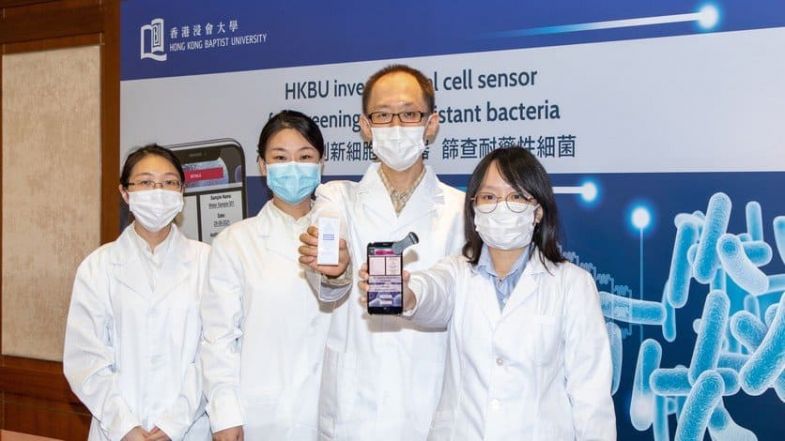A Hong Kong Baptist University (HKBU)-led research team has developed a novel cell sensor with a barcode-like micro-channel structure that enables rapid and low-cost screening of drug-resistant bacteria. The low-cost invention could potentially be used to screen food and water, as well as urgent samples during an infectious disease outbreak.
Antibiotics are often used to treat bacterial infections, but their overuse has led to drug resistance. Antimicrobial susceptibility testing (AST) is currently used to determine which antibiotics can successfully inhibit the growth of a particular strain of bacteria, but conventional systems are slow or expensive.
Led by Dr Ren Kangning, Associate Professor of the Department of Chemistry, the researchers designed a fully automatic, microscope-free AST system to solve this problem. Bacterial samples are injected into the cell culture zone, and the bacteria then flow into different micro-channels which host different concentrations of an antibiotic. The bacteria form visible bars, the lengths of which are proportional to the number of bacterial cells cultured under the different concentrations of the antibiotic. This “barcode” can then be photographed and analysed by a mobile app developed by the team, and it will reveal within three hours whether any drug-resistant pathogens are present in the sample.

A research team led by Dr Ren Kangning has developed a novel cell sensor that enables rapid and low-cost screening of drug-resistant bacteria.
“Our ‘barcode’ testing system is a promising new tool in the fight against antimicrobial resistance. We hope that it will benefit the routine screening of drug-resistant bacteria in the food industry, public areas and healthcare facilities as it does not require advanced clinical facilities or professional testing skills. We plan to develop our invention into a portable AST instrument, and ultimately, we hope it can be used in resource-limited regions,” said Dr Ren.
The research was published in the journal Biosensors and Bioelectronics.
















